Business
Buhari’s latest fuel panel: Racing against time?
Published
3 years agoon
By
Publisher
By Marcel Okeke
During the last week of January 2023 and several months after acute fuel or Premium Motor Spirit (PMS) scarcity in the country, President Muhammadu Buhari set up a 14-man “Steering Committee on Petroleum Products Supply and Distribution Management to find lasting solution to disruptions in the supply and distribution of petroleum products in the country.” The panel which will be chaired by the Petroleum Resources Minister, that is President Buhari himself, has Minister of State for Petroleum Resources, Timipre Sylva, as Alternate Chairman.
The committee, according to its mandate, is to among other things “ensure transparent and efficient supply and distribution of petroleum products across the country.” And in pursuit of this, Mr Sylva has directed the Nigerian Midstream and Downstream Petroleum Regulatory Authority (NMDPRA) to “ensure strict compliance with the Government approved ex-depot and retail prices for PMS to ensure sanity in its supply and distribution across the value chain.”
A statement by the Senior Adviser (Media and Communications) to the Minister of State Petroleum Resources, Mr Horatius Egua, noted that the steering committee is also to ensure national strategic stock management, visibility on the Nigerian National Petroleum Company Limited (NNPC), refineries rehabilitation programme and end to end tracking of petroleum products, especially petrol, to ascertain daily national consumption and eliminate smuggling.
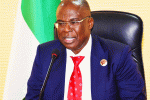
In pursuit of these objectives, Mr Sylva further directed the NMDPRA to ensure that NNPC limited, which is the supplier of last resort, meets the domestic supply obligation of petrol and other petroleum products in the country, stressing that “the interest of the ordinary Nigerian should be protected from price exploitation on other deregulated products such as diesel, kerosene and gas.
“The federal government will not allow misguided elements to bring untold hardship upon the citizenry and attempt to discredit government’s efforts in consolidating the gains made thus far in the oil and gas sector of the economy,” Sylva noted. But, although Mr Sylva has said the ‘right things’ regarding the way forward, the trend of events and antecedents in Nigeria’s oil and gas industry headed by President Buhari and Mr Sylva, seriously put a lie to those pronouncements. President Buhari and his Minister of State, Mr Sylva have to a very large extent lost credibility for several reasons including the total shutdown of Nigeria’s four hitherto functional refineries for a number of years now. This interminable closure of the refineries with a combined refining capacity of 450,000 barrels per day gave rise to the ignoble regime of ‘fuel subsidy’, an opaque, fraud-riddled process that is a product of total reliance of importation of PMS (and other refined products) for Nigerians’ use.
Granted, Nigeria’s four refineries may not have been a perfect state before the inception of the Muhammadu Buhari Administration in May 2015, but it is incredulous that almost eight years down the road the refineries have rather been left ‘dead’. Proposals for their refurbishment have in the past couple of years been announced ad nauseam, with huge sums ‘earmarked’, but practically nothing to show for it. At a point last year, one of the gambits was: “the federal government plans to end refined petroleum products imports by third quarter 2023.” Timipre Sylva, Nigeria’s minister of state for petroleum resources said this during a press briefing in Abuja, Nigeria’s capital. Sylva said: “We are expecting that we will actually be exiting the importation of petroleum products from maybe about the third quarter next year if I were to give it a longer timeframe, but I believe that even before the third quarter next year.”
He said the government can carry out this plan of action because the refurbishment of the country’s refineries will be completed soon. As reported by Reuters, Sylva said at the briefing that Port Harcourt refinery, which had been undergoing refurbishment at the cost of US$1.5 billion, would be delivering 60,000 barrels per day of refined crude by the end of December 2022. Has this happened? No!
Similarly, the Warri refinery is projected to commence operations in December 2023. Also, the Nigerian National Petroleum Company Limited (NNPCL) and Daewoo signed a Memorandum of Understanding (MoU) to rehabilitate the 110,000 barrels per day Kaduna Refinery, with a projection to be completed by 2023. But these projections and pontifications by Mr Sylva all turn out hollow: we are already in 2023; and in about three months’ time, the Muhammadu Buhari administration will hand over to a new Government. Yet, rather than giving updates on progress in the refurbishment of the refineries (or efforts at building new ones), the dominant news from the Government is all about how much ‘fuel subsidy’ would gulp in the next few months.
In line with this trend, at a Channels Television current affairs programme, on Tuesday, February 7, 2023, the Group Managing Director of the Nigerian National Petroleum Company (NNPC) Limited, Mele Kyari said Nigeria required N4.27 trillion to meet its subsidy requirements to increase fuel supply and “combat lingering scarcity across the country.” According to him, “yesterday’s data is that this product will land in this country at N295 to the litre; that means you have to sell at N113 to the marketing companies, so that we will be able to maintain the current subsidy regime that we are running.” Elaborating further, Kyari said “this means you have N185 per litre of subsidy on every product that comes into the country.” In sum, he said: “…if you look at the average that we have done 63 million litres January to date, and you convert it to 365 days, that means you need N4.27 trillion for you to meet the subsidy requirements for this country.” Surprisingly, the NNPC boss gave these details to show and buttress that the N3.36 trillion in 2023 budget for fuel subsidy (January to June) would be insufficient for his organization which is the sole importer of the PMS and others.
But while Mr Kyari’s focus is on subsidy updates, the President Buhari-led 14-man steering committee still propses to pursue refineries rehabilitation and end-to-end tracking of petroleum products, especially petrol, to ascertain daily national consumption and eliminate smuggling. Unfortunately, each of these challenges in the oil and gas sector to be addressed, took several years to attain their complex forms today. National daily consumption of PMS and other refined products that have been guestimates over the years, still remain questionable and controversial till date. Data, as of November 2022, from the Nigerian Midstream and Downstream Petroleum Regulatory Authority (NMDPRA) show that the national average daily consumption of premium motor spirit (PMS) was 60,000,000 litres, a figure frontally controverted by the leadership of Nigeria Customs Service at the time it was released. But, if after decades of its existence, the NNPCL’s (or NNPC) priority is still the importation and monitoring of the distribution of imported PMS in Nigeria, that speaks volume about its lack of focus.
The question then is: what can the Buhari fuel panel do in three months to the exit of the administration? It is certainly racing against time. In point of fact, Mr President has in his Executive Order Number 14 signed on Thursday, February 9, set up a Presidential Transition Committee—to effectively plan and execute his administration’s “smooth hand-over” to the next Government that will be led by the winner of the February 25, 2023 Presidential election in Nigeria. So, whither the latest steering committee on petroleum products supply and distribution management headed by the Minister of Petroleum Resources, President and Commander-in-Chief of the Armed Forces of the Federal Republic of Nigeria, Muhammadu Buhari?
- Mr. Okeke, an economist, sustainability expert and consultant on business strategy, is National Daily Economic Analyst. He can be reached at: [email protected]
You may like
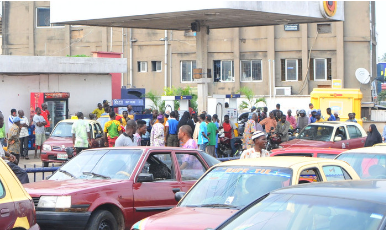

Fuel scarcity returns to Ibadan as pump prices surge
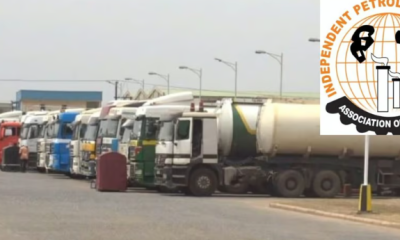

IPMAN speaks on solution to fuel scarcity
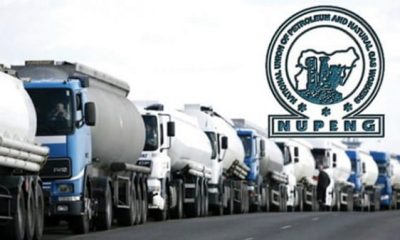

Fuel scarcity looms as leadership crisis rocks NUPENG
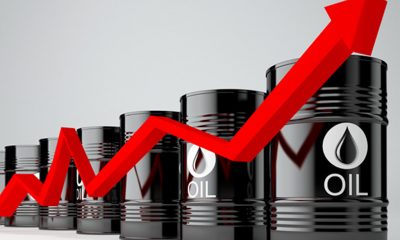

Nigerians may pay more for fuel as crude oil price nears $100 per barrel


Protests rock Ibadan over naira, fuel scarcity
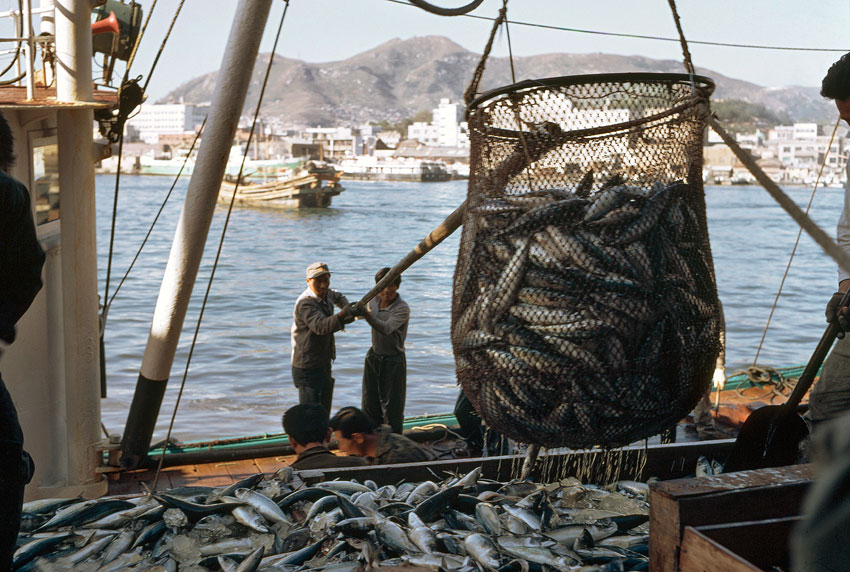

Fishermen lament cash crunch, fuel scarcity
Trending

 Health5 days ago
Health5 days agoDeclassified CIA memo explored concealing mind-control drugs in vaccines

 Entertainment1 week ago
Entertainment1 week agoSimi addresses resurfaced 2012 tweets amid online backlash

 Crime6 days ago
Crime6 days agoSenior police officers faces retirement after Disu’s appointment as acting IGP

 Education1 week ago
Education1 week agoPeter Obi urges JAMB to address registration challenges ahead of exams

 Health1 week ago
Health1 week agoNAFDAC issues alert on suspected revalidated SMA Gold infant formula

 Comments and Issues7 days ago
Comments and Issues7 days ago20 Critical Fixes to Save Nigeria’s Democracy from Electoral Fraud

 Football7 days ago
Football7 days agoMartínez ruled out of Everton clash with calf injury

 Latest6 days ago
Latest6 days agoICPC yet to respond to El-Rufai’s bail request as arraignment date looms

